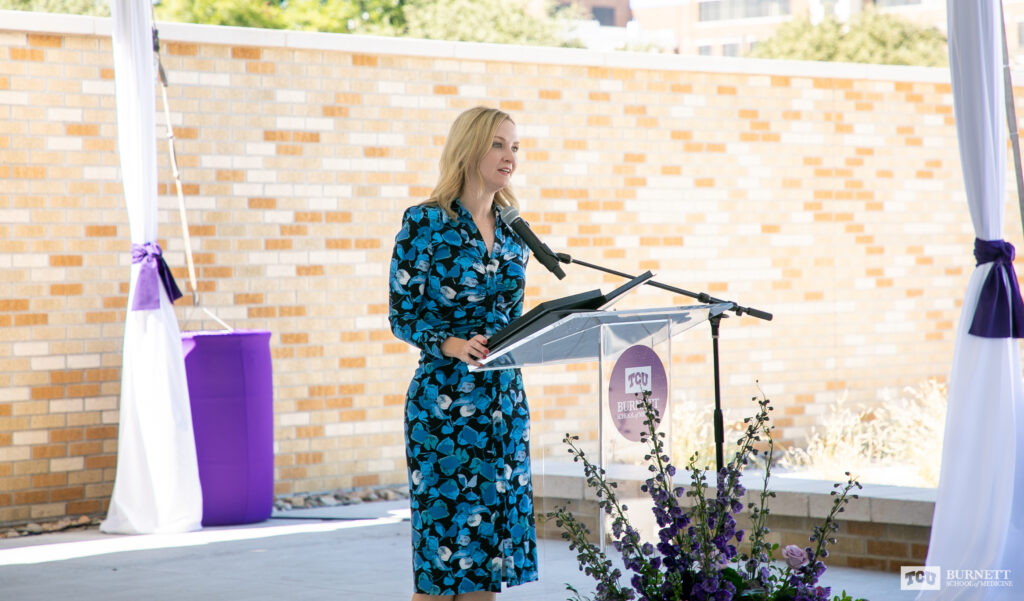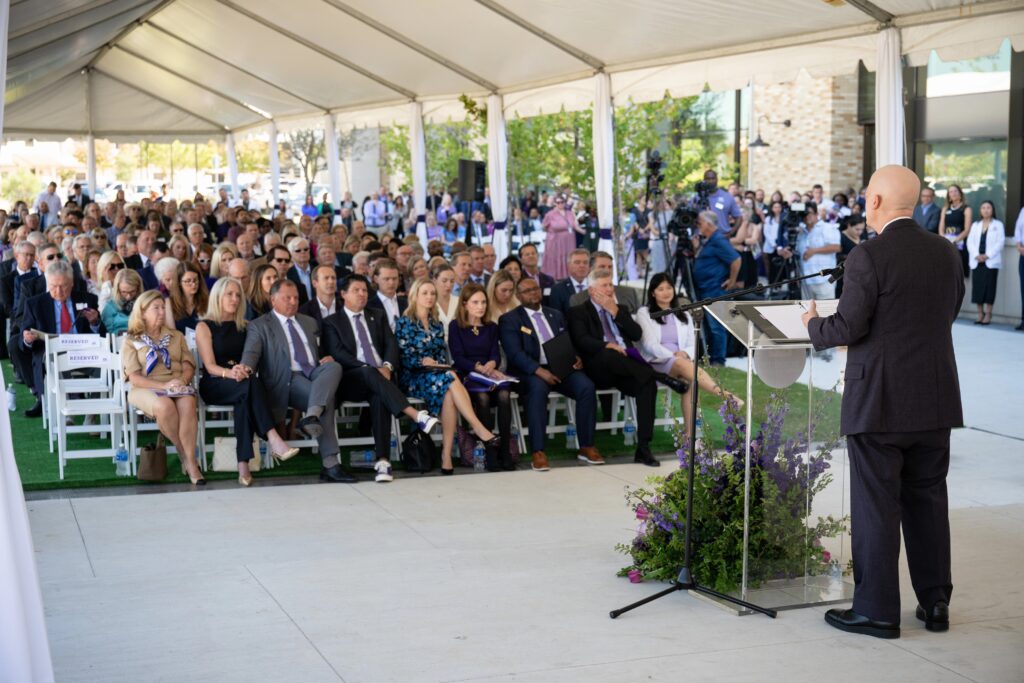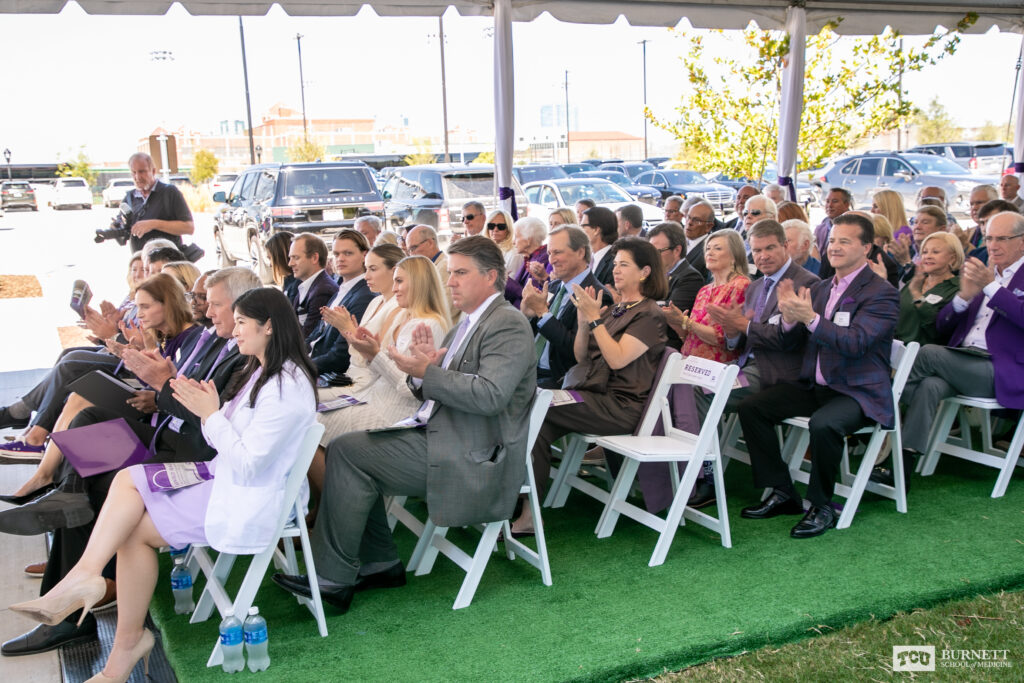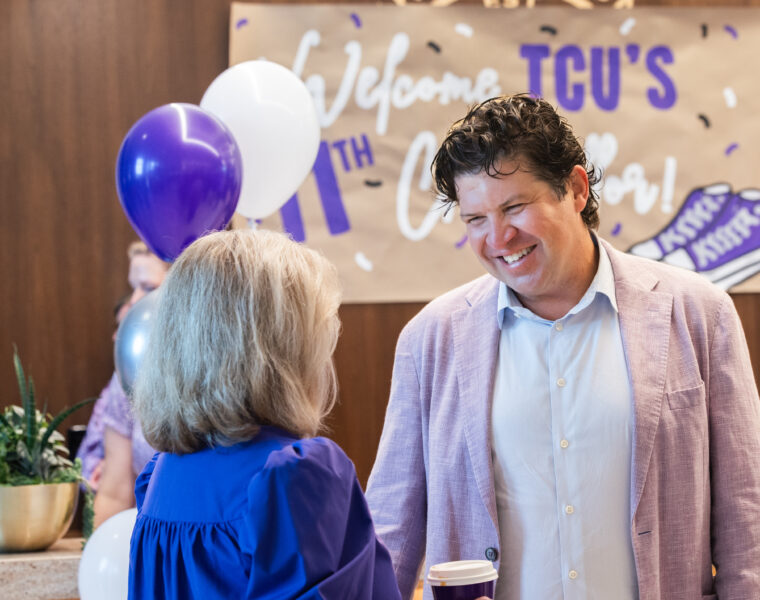Dear Horned Frogs,
The dedication ceremony for Arnold Hall, the new home of the Anne Burnett Marion School of Medicine at Texas Christian University, was a beautiful celebration for TCU, our students and the community.
The ceremony opened with a vocal performance from one of our talented medical students, Talia Thomas, singing, “What a Wonderful World.” Listening to the words of this iconic and moving song, one couldn’t help but feel inspired and full of hope for the future.
Arnold Hall itself is a wonderful, technologically advanced and highly functional space. The level of attention to detail is what we’ve come to expect from TCU’s Planning, Design, and Construction team, which is dedicated to excellence at every step. Arnold Hall was made possible by the generosity of TCU Trustee Greg Arnold and his wife Ashley, who have been dedicated TCU supporters for many years.
The medical school’s development, from vision to reality in a decade’s time, exemplifies what can happen when leaders like Chancellor Boschini and leaders from the TCU Board of Trustees come together with city and civic leaders to dream big. Together, they set our community on the right course for the future with the Burnett School of Medicine.
Read on for three ways the Burnett School of Medicine is leading on.
Go Frogs!
Daniel W. Pullin
1. Community Impact
In a time when our city and state face a shortage of health care professionals, the Burnett School of Medicine is a beacon of hope. A medical school has many important benefits, including contributing to the economy, creating jobs, advancing research and attracting biomedical companies. The Burnett School of Medicine has already graduated its first two classes of doctors – many of whom will stay in Texas for their residencies. In the short- and long-term future, the Burnett School of Medicine’s impact will be far-reaching and continue to grow exponentially in Fort Worth and across the region.
2. Technology of the Future
Inside the classroom, the Burnett School of Medicine is equipping its students with the latest technologies in medical practice. From simulation labs to hands-on experience with cadavers, TCU medical students are exposed to immersive clinical training experiences in preparation for real-world challenges. Dr. Stuart Flynn, the founding dean of the Burnett School of Medicine, teaches a course for first-year students covering cutting-edge topics like artificial intelligence, machine learning and precision health genomics. The Future Accelerators of Medicine and Beyond (FAB) course isn’t just about keeping students up to date with technological advancements; it’s about preparing them to navigate and leverage new technologies in their future careers.
3. Empathy & Patient Care
Through an innovative curriculum that blends the latest advances in science and technology with a dedicated emphasis on communication and empathy, the Burnett School of Medicine is transforming medical education. The school’s curriculum promotes active, team-based learning and initiatives that bridge medicine with societal needs, particularly through a focus on health equity. It also emphasizes communication and empathy to prepare students to deliver compassionate, patient-centered care. The positive feedback TCU students receive during external rotations highlights the effectiveness of this innovative vision and the commitment of our students to patient-centered care. This is the future of medical education, and it started right here at TCU.
Recently, I had the opportunity to speak with Dr. Stuart Flynn, founding dean of the Burnett School of Medicine. Our full conversation is available on the TCU Innovates podcast.







